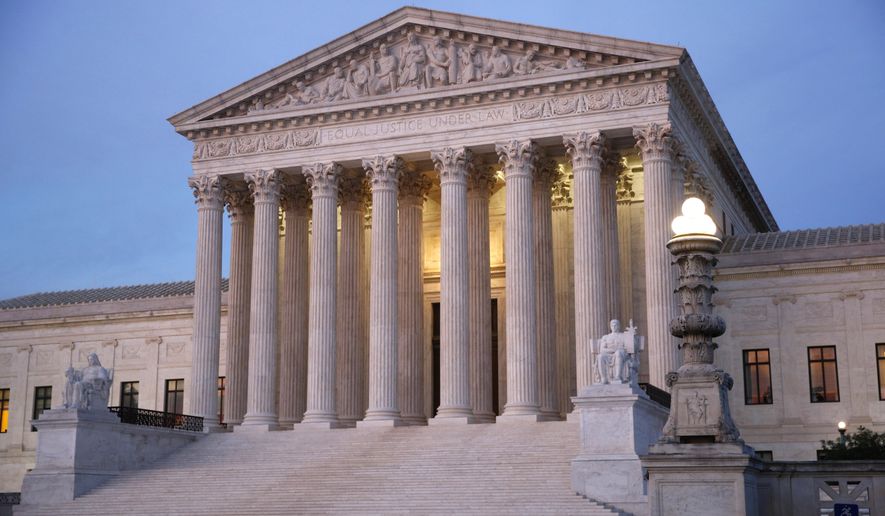The Supreme Court ruled Thursday that sex offenders who committed their crimes before the federal government mandated a national sex registration system must still sign up.
Offenders who had been convicted before the 2006 Sex Offender Registration and Notification Act had argued that since it wasn’t in effect at the time of their sentencing, adding the requirement later was unfair.
The case turned on whether Congress could leave it to the attorney general to decide when the new registration requirements kicked in.
The court, in an unusual lineup that saw Justice Samuel A. Alito Jr. join the four Democrat-appointed justices, said Congress was explicit in saying the 2006 law known as SORNA could apply to prior offenders, so the attorney general’s decision to follow that guidance was justified.
“If SORNA’s delegation is unconstitutional, then most of government is unconstitutional,” Justice Elena Kagan wrote in the 5-3 opinion.
The 13-year-old law established a baseline for determining who would be classified as a sex criminal and ordered the Justice Department to create a searchable national database of offenders, the Dru Sjodin National Sex Offender Public Website, that compiled individual state registries.
Last year, the Justice Department said there were about 850,000 registered offenders on the national list.
The man who challenged the registry in Thursday’s case, Herman Gundy, was convicted in 2005 of sexually assaulting a minor. Prosecutors accused Mr. Gundy of giving cocaine to an 11-year-old girl and raping her.
He was released in 2012, but failed to register as a sex offender, drawing new charges of failing to comply.
Mr. Gundy’s lawyers estimated more than 500,000 individuals were forced to register under SORNA for crimes committed before the law was enacted.
They said Congress had given over too much of its own powers when it told the Justice Department to create the registry.
Justice Kagan, though, said Congress regularly gives instructions and decision-making power to agencies, and SORNA was not unusual. She said Congress made clear it intended to give authority to the attorney general to decide how broadly to draw the registry based on its language, such as using the word “comprehensive,” defining who sex offenders were, and its choice of using the word “was” rather than “is” to specific who’s covered.
“The word ‘is’ would have taken care of all future offenders. The word ‘was’ served to bring in the hundreds of thousands of persons previously found guilty of a sex offense, and thought to pose a current threat to the public,” she wrote.
Justice Alito, writing a concurring opinion, said in principle he agreed that Congress has given away too much authority and he would have been willing to undo some of those delegations.
“But because a majority is not willing to do that, it would be freakish to single out the provision at issue here for special treatment,” he wrote.
Justice Neil M. Gorsuch wrote the dissent, which Justice Clarence Thomas and Chief Justice John G. Roberts Jr. joined, saying the law Congress wrote was too broad and did turn over too much power to the attorney general.
“Congress thus gave the attorney general free rein to write the rules for virtually the entire existing sex offender population in this country,” the dissent said.
Justice Brett M. Kavanaugh did not participate in the case.
Advocates for limited government called Thursday’s ruling a setback, but said the written opinions suggest there could be five justices willing in the future to take a look at cases that would limit the ability of Congress to hand off power to federal agencies.
“Gorsuch’s and Alito’s opinions together are nothing short of an open invitation to litigants and lower court judges to present cases to the high court that could fully reinvigorate the nondelegation principle in the foreseeable future,” said Todd Gaziano, director of Pacific Legal Foundation’s Center for the Separation of Powers.
• Alex Swoyer can be reached at aswoyer@washingtontimes.com.




Please read our comment policy before commenting.